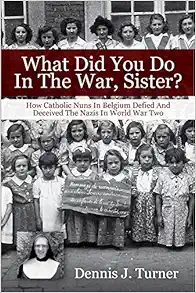
Description
About the Author Dennis Turner graduated from Georgetown University in 1967 with a degree in History. He received his Juris Doctorate degree from Georgetown University Law School in 1970. He has served as an Assistant County Prosecutor and as a Magistrate-Judge. Since 1974, he has been a Professor of Law at the University Of Dayton School Of Law. During his tenure at the University of Dayton he has served as Assistant Dean, Acting Dean, Director of the Law Clinic and Director of the Legal Profession Program. The University of Dayton has awarded him its highest award for teaching, The Faculty Teaching Award. He has also received numerous Teacher of the Year Awards from the students at the University Of Dayton School Of Law and was chosen to be one of the Master Teaching Fellows for the University of Dayton. He has been a visiting professor for the University of Notre Dame London Law Program. He also has extensive experience with the British criminal justice system through his association with the barrister firm, Pump Court Chambers, in Winchester, England. Dennis Turner is the author of many law review articles and a law text book, Steele v. Kitchener Case File. For two years, he also wrote a bi-weekly column for the Dayton Daily News entitled, On the River.
Features & Highlights
- The book is a fictional memoir based on actual events. The inspiration for the book came from hundreds of letters and other accounts written by Sisters of Notre Dame de Namur who were living in German-occupied Belgium and Italy during World War Two.
- Turner created a composite character, Sister Christina, who is described as an Ohio farm girl, who joined the Sisters of Our Lady of Namur to teach English and agricultural skills to young Catholic girls. Assigned to Belgium in 1939, she worked Nazi-occupied Belgium for the duration of World War Two. She and other Sisters of Our Lady of Namur in the Saint-Hubert Convent quickly learned that living their normal contemplative, disciplined lives was impossible in a country controlled by ruthless Nazis. Soon they were risking their lives by joining forces with the Belgian Resistance to hide refugees, Jews, and downed American pilots. Sister Christina believed her ordeal was over in September of 1944 when American troops liberated Saint-Hubert. That hope was crushed when Saint-Hubert was recaptured by the German army during the Battle of the Bulge; forcing the Sisters to revert to their tactics for survival and resistance until liberated for the second time.





